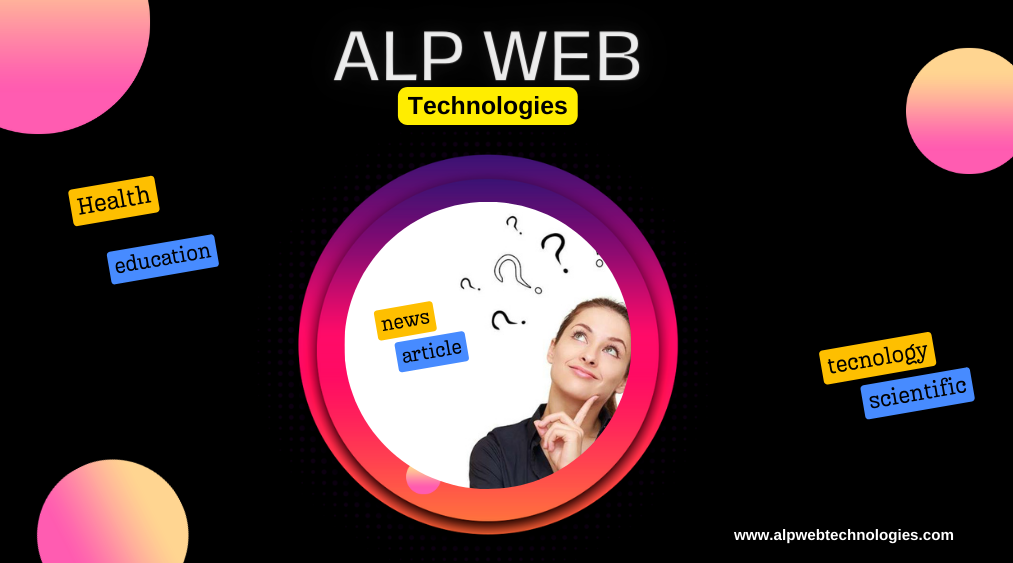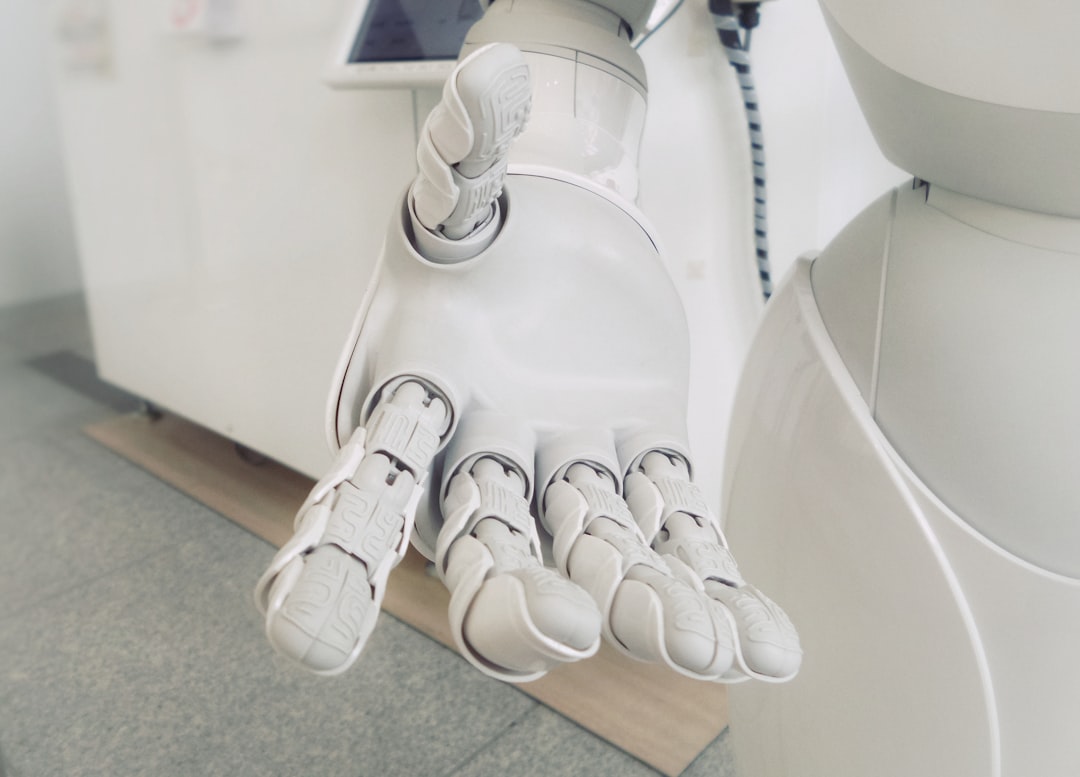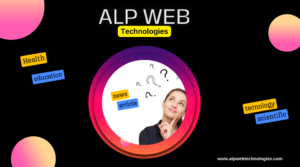
Share this article on social media
AI in education is revolutionizing the traditional approach to learning, offering enhanced and personalized learning experiences through advanced technology. From personalized learning modules to AI-powered tutoring, the integration of artificial intelligence is reshaping the educational landscape. This blog post will delve into the multifaceted role of AI in education, exploring how it enhances student engagement, improves accessibility, addresses educational challenges, and facilitates data-driven decision making. Additionally, we will explore the ethical considerations in AI-driven education, offering valuable insights into the future of learning. Join us on this insightful journey into the realm of AI in education and its profound impact on enhancing learning experiences through technology.
The Role of AI in Education
AI in Education: Enhancing Learning Experiences through Technology is revolutionizing the traditional methods of teaching and learning. Here’s how AI is reshaping the educational landscape:
Personalized Learning: AI algorithms analyze individual student’s learning patterns and abilities, enabling educators to tailor personalized learning paths for each student. This personalized approach enhances student engagement and ensures that each student learns at their own pace, leading to better overall academic performance.
Efficient Resource Utilization: With AI, educational institutions can optimize resource allocation, identifying areas where additional support is needed and where resources are being underutilized. This data-driven approach helps in improving the overall efficiency of education systems.
Real-time Feedback and Assessment: AI allows for automated grading, providing students with instant feedback on assignments and assessments. This not only reduces the burden on educators but also enables students to identify and address their learning gaps in real time.
Predictive Analysis for Student Success: Through predictive analytics, AI can forecast students at risk of falling behind, enabling early intervention to support struggling students and prevent dropouts. This proactive approach can significantly improve student retention rates.
Adaptive Learning Platforms: AI-powered adaptive learning platforms adjust the content and pace of learning based on individual student performance. This ensures that each student receives a customized learning experience, effectively targeting their strengths and weaknesses.
AI in Education: Enhancing Learning Experiences through Technology is not about replacing educators but rather empowering them with valuable insights and tools to provide the best possible education for every student.

Implementing Personalized Learning with AI
In the realm of education, AI in Education: Enhancing Learning Experiences through Technology has been pivotal in enabling personalized learning experiences. By leveraging AI, educators can tailor learning materials and methods to cater to individual student needs. Here’s how AI is revolutionizing personalized learning:
Adaptive Learning Platforms: AI algorithms analyze students’ learning patterns and customize the curriculum to suit their academic proficiency. This personalized approach fosters a more efficient learning experience, ensuring that each student receives content at an appropriate level of difficulty.
Intelligent Tutoring Systems: AI-powered tutoring systems are designed to provide individualized support, adapting to the student’s pace and style of learning. These systems can identify areas where the student requires additional assistance, thereby offering targeted guidance.
Personalized Feedback and Assessment: AI facilitates personalized feedback by evaluating each student’s performance and providing tailored assessments. This not only saves educators’ time but also ensures that students receive constructive feedback aligned with their specific learning goals.
Virtual Learning Assistants: AI-driven virtual assistants offer students additional support outside the traditional classroom setting. These assistants can provide personalized recommendations for supplementary study materials, guide students through problem-solving exercises, and offer on-demand assistance.
Implementing personalized learning with AI has proven to be instrumental in addressing the diverse learning needs of students, thereby fostering a more inclusive and effective educational environment.
By seamlessly integrating AI into the realm of personalized learning, educational institutions are better equipped to provide tailored educational experiences that cater to the unique requirements of each learner.
Enhancing Student Engagement through AI
In today’s digital age, student engagement is crucial for effective learning. AI in education is revolutionizing student engagement by providing personalized and interactive experiences. Here’s how AI is enhancing student engagement in education:
Personalized Learning: AI algorithms analyze each student’s learning patterns, preferences, and performance to tailor personalized learning materials and activities. By catering to individual needs, AI ensures that students remain engaged and can learn at their own pace, leading to better retention and understanding of the material. This personalized approach fosters a deeper connection with the subject matter.
Interactive Learning Tools: AI-powered interactive learning tools, such as virtual reality simulations and educational games, captivate students’ attention and make learning more enjoyable. These tools create immersive experiences that transform traditional classroom subjects into engaging, hands-on activities. Students are motivated to actively participate, leading to improved focus and retention of information.
Real-time Feedback and Assessment: AI enables real-time feedback on assignments and assessments. Students receive immediate insights into their performance, allowing them to track their progress and understand their strengths and weaknesses. This instant feedback loop encourages students to stay motivated and actively engage in their learning journey.
Adaptive Learning Platforms: AI-based adaptive learning platforms continuously adjust the content and difficulty level based on individual student performance. This dynamic approach keeps students challenged yet not overwhelmed, ensuring sustained engagement and continuous improvement.
In comparison to traditional methods, AI in education is significantly enhancing student engagement by providing tailored, interactive, and dynamic learning experiences that cater to the diverse needs of students.
AI-Powered Tutoring and Mentoring
In the realm of education, AI has opened up new possibilities for personalized tutoring and mentoring. By leveraging advanced algorithms and machine learning capabilities, AI systems can adapt to the individual learning styles and paces of students, providing tailored support and guidance. Here’s a closer look at how AI is transforming tutoring and mentoring in education:
Personalized Learning Paths: AI-based tutoring systems can analyze a student’s performance and learning patterns to create custom learning paths. This personalized approach ensures that students receive the right level of support and challenges, thereby enhancing their learning experiences.
24/7 Availability: Unlike human tutors, AI-powered systems are available round the clock. This accessibility allows students to seek help and clarification on their academic queries at any time, fostering a culture of continuous learning.
Instant Feedback and Assessment: AI can provide instant feedback on assignments, quizzes, and tests. This immediate assessment helps students to identify their strengths and areas needing improvement, thereby allowing them to focus on specific learning objectives.
Adaptive Learning Resources: AI algorithms can recommend tailored learning resources such as e-books, videos, or interactive modules based on the student’s learning preferences and performance data. This adaptive approach ensures that students have access to diverse educational materials catering to their individual needs.
In comparison to traditional tutoring and mentoring approaches, AI-powered systems offer a more flexible, adaptive, and data-driven framework for supporting students’ academic growth. The integration of AI in tutoring and mentoring not only complements the role of educators but also enriches the overall learning journey for students.
By embracing AI in education, institutions can revolutionize the way students receive academic support, paving the way for a more inclusive and effective learning environment.
In summary, AI in Education: Enhancing Learning Experiences through Technology is reshaping tutoring and mentoring, providing tailored support, instant feedback, and personalized learning resources that cater to the individual needs of students. This approach ensures a more inclusive and effective learning environment, ultimately enhancing the overall educational experience.

Improving Accessibility and Inclusivity in Education
In the realm of education, leveraging AI technology plays a pivotal role in enhancing accessibility and inclusivity, thereby ensuring that learning experiences are tailored to meet the diverse needs of students.
AI in Revolutionizing Accessibility
AI in Education: Enhancing Learning Experiences through Technology has significantly contributed to breaking down barriers and making education accessible to a wider spectrum of students. Here’s how AI is revolutionizing accessibility:
- Personalized Learning Paths: AI algorithms analyze individual student’s learning patterns and customize educational materials to suit their specific needs, whether it is through audio, visual, or interactive content.
- Language Translation and Transcription: AI-powered tools enable real-time translation of educational content and transcription of lectures, making learning accessible to non-native language speakers and students with hearing impairments.
- Adaptive Assessments: AI facilitates adaptive assessments that adjust difficulty levels based on student performance, ensuring fair evaluation for all learners.
Inclusivity through AI
By embracing AI in Education: Enhancing Learning Experiences through Technology, educational institutions have been able to promote inclusivity in the following ways:
- Customized Learning Tools: AI-driven adaptive learning platforms cater to the unique learning styles of students with disabilities, including dyslexia, ADHD, and autism, by offering personalized support and resources.
- Virtual Reality for Immersive Learning: AI integrates virtual reality to create immersive learning experiences, benefiting students with physical disabilities by providing access to places and experiences they may otherwise be unable to access.
- Socio-Emotional Support: AI-powered chatbots and virtual mentors provide socio-emotional support, offering a safe space for students to seek guidance and assistance without fear of judgment or bias.
In summary, AI in Education is a catalyst for fostering a learning environment that celebrates diversity and ensures that every student, regardless of their abilities or background, can engage in meaningful and equitable educational experiences.
Data-Driven Decision Making in Education
In the rapidly evolving landscape of education, data-driven decision making has become increasingly critical. By utilizing AI in education, educators and administrators can harness the power of data to make informed choices that directly impact student outcomes. Here’s how AI in education is enhancing learning experiences through technology:
Insightful Analytics: AI in education enables the collection and analysis of vast amounts of data related to student performance, engagement, and learning patterns. This empowers educators to gain valuable insights into areas that require improvement and determine the effectiveness of teaching strategies.
Personalized Interventions: Through AI-powered analytics, educators can identify students who may be at risk of falling behind academically. This allows for targeted interventions to be implemented, providing personalized support and resources to help students succeed.
Resource Allocation: With the help of AI, educational institutions can optimize resource allocation based on data insights. Whether it’s allocating additional support to specific classes or identifying areas for faculty development, data-driven decision making ensures that resources are utilized where they are most needed.
Continuous Improvement: AI in education facilitates a culture of continuous improvement by allowing educators to track the impact of interventions over time. This iterative approach empowers educators to adapt their strategies based on real-time data, leading to ongoing enhancements in the learning experience.
By integrating AI and data-driven decision making, educational institutions can adapt and respond to the diverse needs of students, ultimately enhancing the quality of education and promoting student success.
In the following comparison table, we can see the impact of traditional decision making versus data-driven decision making in education:
| Traditional Decision Making | Data-Driven Decision Making | |
|---|---|---|
| Resource Allocation | Based on assumptions and general trends | Informed by real-time data and student needs |
| Interventions | One-size-fits-all approach | Personalized interventions based on student performance |
| Improvement | Limited ability to track the impact of decisions | Continuous feedback loop for ongoing improvement |
Addressing Educational Challenges with AI
In the realm of education, AI presents solutions to several persistent challenges, offering innovative approaches to tackle long-standing issues. Here we explore how AI in education is instrumental in addressing various educational challenges:
Personalized Learning: AI technology allows for personalized lesson plans and adaptive learning methods, catering to individual student’s pace and learning style. This tailored approach enhances the overall learning experience, promoting better comprehension and retention of knowledge.
Identifying Learning Gaps: AI tools can analyze student performance data to pinpoint areas where individuals or whole classes are struggling. By identifying these learning gaps, educators can intervene with targeted support, ensuring that no student is left behind.
Resource Optimization: AI algorithms can help optimize resource allocation by analyzing data on factors like student attendance, performance, and teacher availability. This ensures that educational institutions can efficiently allocate resources where they are most needed.
Predictive Analytics for At-Risk Students: AI can predict which students are at risk of falling behind or dropping out based on various indicators. Early intervention based on these predictions can help support students before they reach a critical point.
AI in education, therefore, acts as a catalyst for transforming traditional educational systems and overcoming hurdles that have long impeded the learning process.
By intelligently leveraging AI, educational institutions can refine their strategies, leading to more effective and inclusive learning environments.
In summary, AI in education is a vital tool in proactively addressing and mitigating the challenges faced in traditional educational settings.

Ethical Considerations in AI-Driven Education
When integrating AI in education, it is crucial to consider the ethical implications that arise from the use of this technology. The ethical considerations in AI-driven education play a pivotal role in ensuring that the implementation of AI aligns with the best interests of students and educators. Here are some key ethical considerations to take into account:
Data Privacy and Security: With AI analyzing and storing large amounts of student data, ensuring data privacy and security is paramount. It is essential to establish robust measures to safeguard sensitive information and mitigate the risk of data breaches.
Algorithmic Bias and Fairness: AI algorithms must be designed and trained to be free from bias, especially in areas such as student assessments and personalized learning. Educators need to critically assess and address any biases present in AI systems to ensure fair treatment of all students.
Transparency and Accountability: Educational institutions should prioritize transparency about the use of AI systems. This involves clearly communicating how AI is utilized in educational settings and being accountable for the outcomes generated by AI-driven decisions.
Equitable Access to AI Resources: It is vital to ensure that all students have equal access to AI-driven educational resources and opportunities. This requires addressing disparities in access to technology and training to use AI tools effectively.
Ethical Use of Student Data: Educators and AI developers must adhere to ethical standards when using student data, ensuring that data is used solely for educational purposes and with the consent of students and their families.
By addressing these ethical considerations, the integration of AI in education can foster a learning environment that is not only technologically advanced but also ethical, equitable, and conducive to positive learning experiences.
Frequently Asked Questions
What is AI in education?
AI in education refers to the use of artificial intelligence and machine learning technologies to enhance learning experiences for students. It involves the development of AI-powered educational tools, adaptive learning systems, and personalized learning platforms that can analyze student data and provide customized support and feedback to improve learning outcomes.
How does AI benefit education?
AI benefits education by providing personalized learning experiences, automating administrative tasks, enabling intelligent tutoring systems, predicting student performance, and improving accessibility for students with diverse learning needs. It can also support teachers by providing data-driven insights and recommendations to enhance instructional strategies.
What are some examples of AI in education?
Examples of AI in education include intelligent tutoring systems, language learning apps, adaptive learning platforms, virtual reality simulations for educational content, AI-powered assessment tools, and smart content recommendation systems. These technologies help in creating engaging and personalized learning experiences.
Is AI replacing teachers in education?
AI is not replacing teachers in education. Instead, it is augmenting and supporting the work of educators by providing tools and resources to enhance teaching and learning. AI can automate certain routine tasks, but the role of teachers in guiding, mentoring, and inspiring students remains essential.
What are the potential challenges of AI in education?
Some potential challenges of AI in education include data privacy concerns, algorithm bias, ethical use of AI in decision-making, digital equity issues, and the need for proper teacher training to effectively integrate AI-powered tools into the classroom. Addressing these challenges is crucial for responsible and effective use of AI in education.









